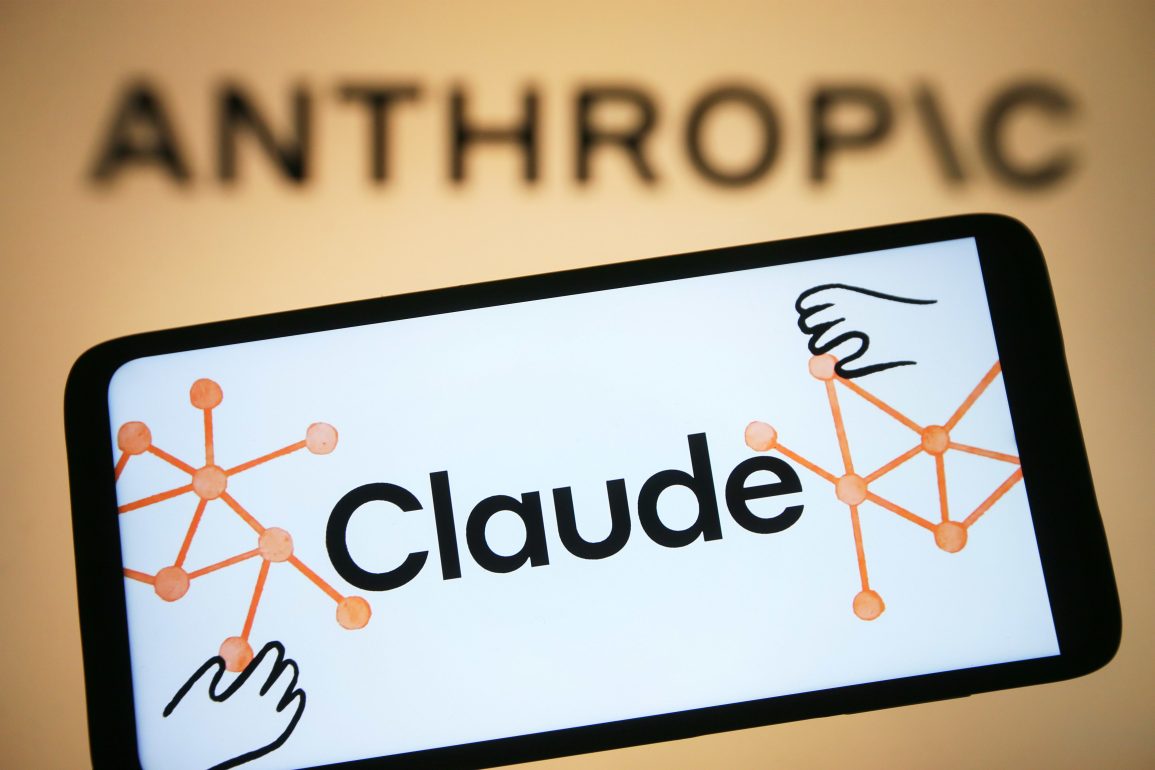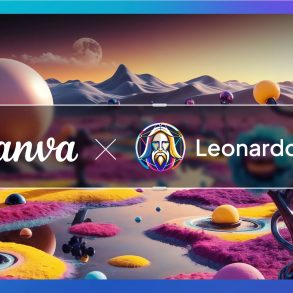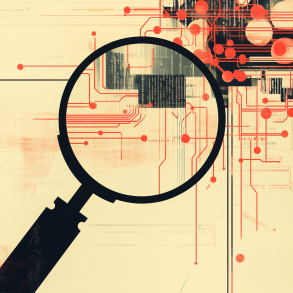Anthropic, the safety-minded AI startup founded by former OpenAI researchers, has unveiled innovative features designed to assist enterprise teams in leveraging Claude, its series of advanced language models. These new tools allow employees to enrich Claude with crucial project-specific information simply by dragging and dropping files into the platform and sharing Claude’s insights with colleagues directly.
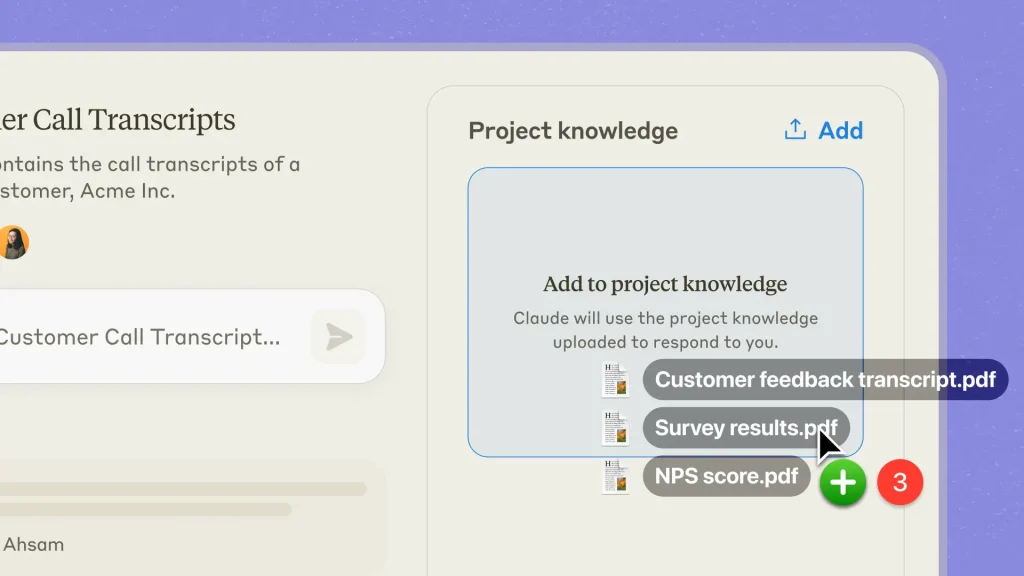
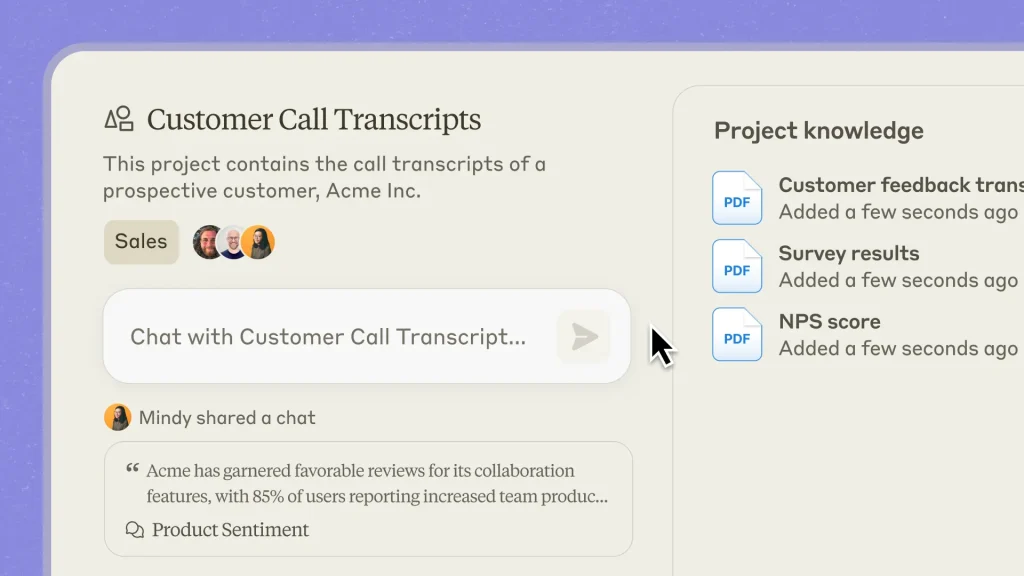
In a detailed blog post, Anthropic announced the availability of a new shared workspace called “Projects,” which, according to Anthropic’s product manager Scott White, acts as a “shared repository of knowledge.” Subscribers can now drag and drop external files into each project, creating a comprehensive “source of truth” that Claude retains for all related inquiries. This repository can handle as much information as a 500-page book, aligning with the impressive 200,000-token context window that Claude can process.
Scott White shared his vision in a recent VentureBeat interview, stating, “Our vision for Claude has always been to create AI systems that work alongside people and meaningfully enhance their workflows.” By centralizing knowledge and AI interactions in one accessible space, Projects are designed to improve team collaboration and productivity.
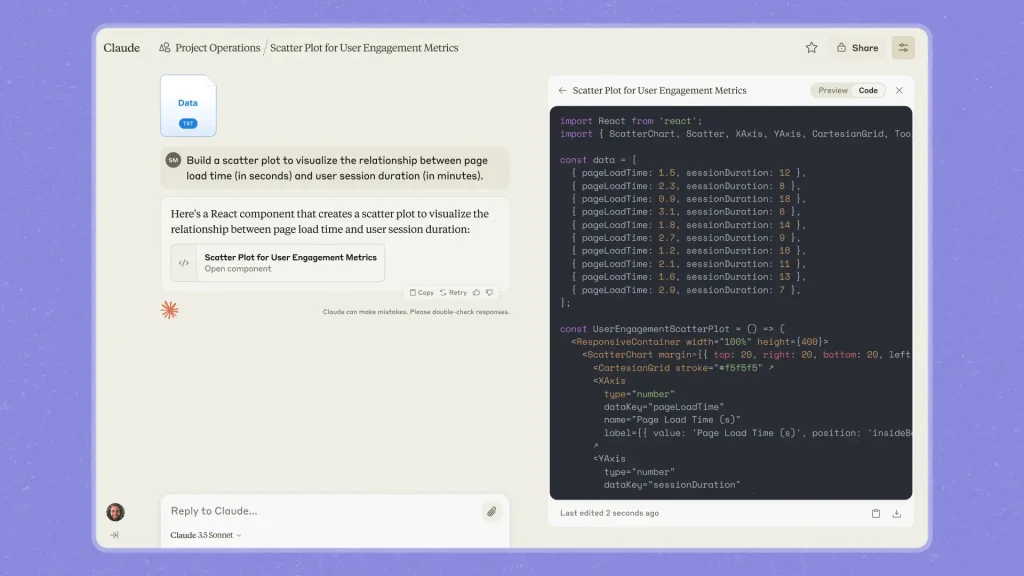
The practical implications are significant. For instance, a product manager can now upload all relevant documents to Projects and ask Claude to analyze them for compliance issues, streamlining processes that typically require extensive manual labor.
Anthropic’s approach is also aimed at overcoming the “cold start” problem in AI, where systems initially lack specific context. By allowing users to provide Claude with relevant internal knowledge, the AI gets a “warm start,” quickly adapting to the organization’s specific needs.
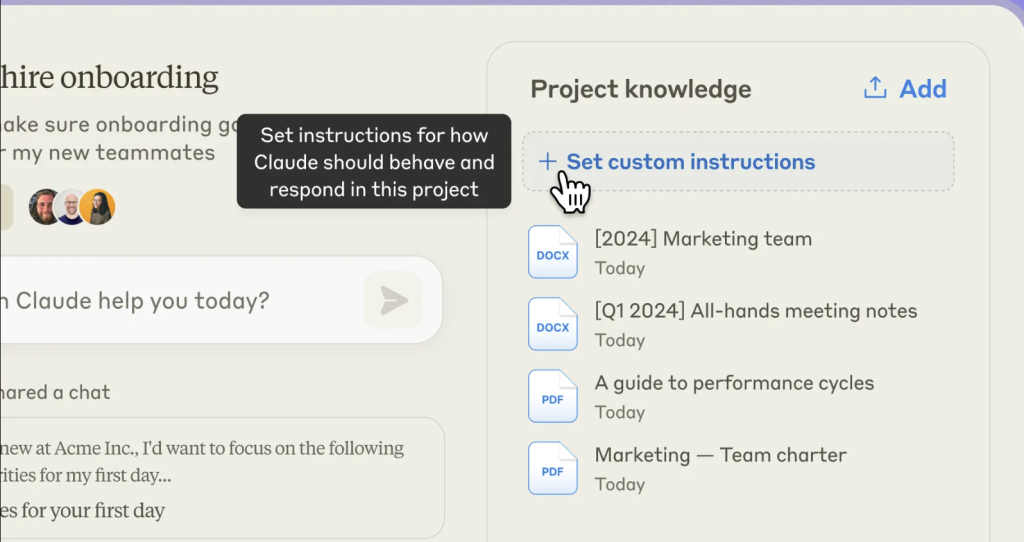
The new features have found diverse applications. Marketers, legal teams, and investment firms have used Projects to manage style guides, legal documents, and financial reports, respectively, enhancing Claude’s utility in generating targeted outputs. The introduction of Artifacts has furthered this by enabling seamless content creation alongside AI interactions, particularly in coding, designing, and content generation.
Bradley Silicani, chief operating officer at Anrok, highlighted the efficiency gains, noting,
Claude’s ability to quickly analyze our existing help center articles, extract relevant information, and produce tailored, step-by-step guides for our operations staff is remarkable.”
Anthropic has also introduced enhanced sharing capabilities, allowing more nuanced collaboration within teams. “We’ve implemented granular permission settings,” said White, ensuring that sensitive information remains protected while promoting collaborative work.
In addressing data security and privacy, Anthropic ensures that data within Projects is robustly secured, with multiple permission levels and clear policies on data usage. White emphasized, “Projects offer multiple permission levels to ensure data security,” adding that users could set privacy levels and even delete Projects, with all associated data being removed from cloud storage within 30 days.
As Anthropic continues to integrate its AI solutions into the enterprise environment, it maintains a focus on collaboration, enhancing human capabilities, and adapting to real user needs across industries. This strategy positions Anthropic as a formidable competitor in the AI-assisted workplace productivity space, challenging established players like OpenAI and Google.


